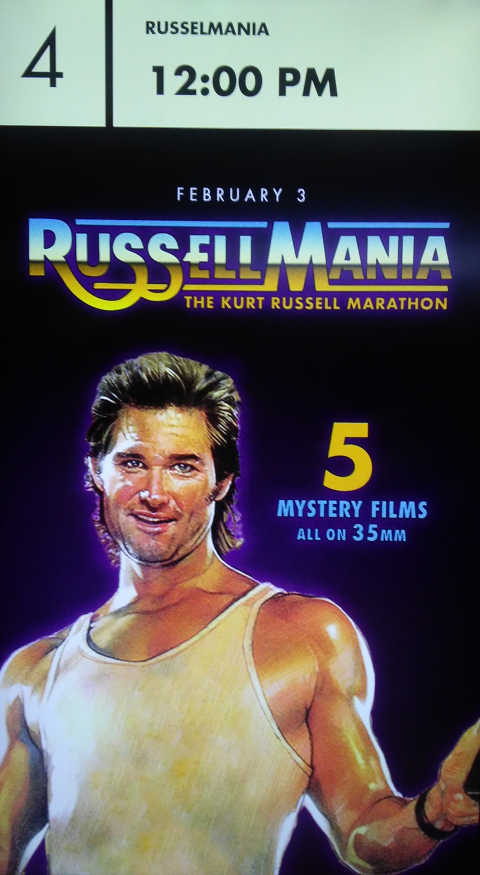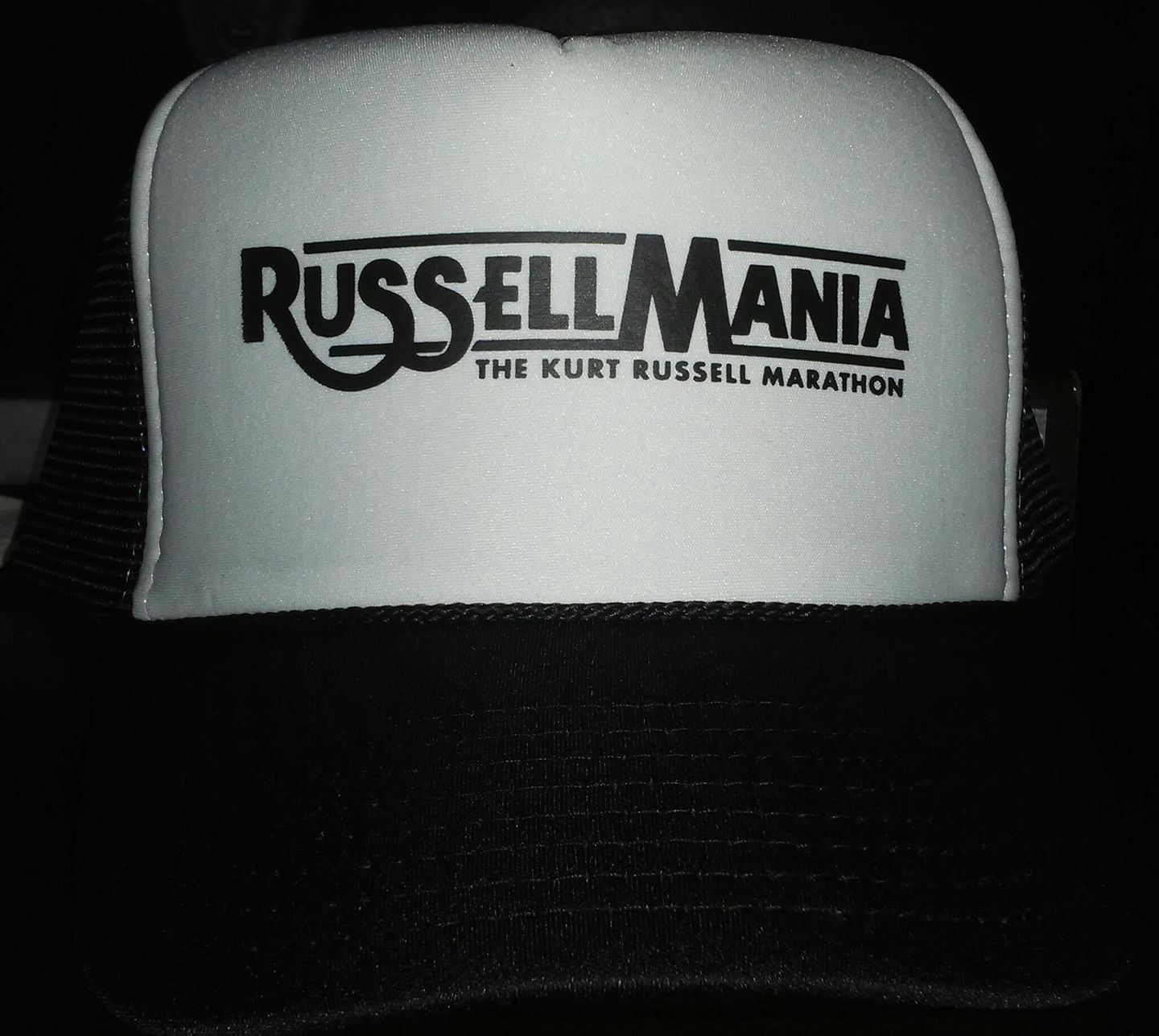Another Super Bowl Saturday, another actor marathon at Alamo Drafthouse Yonkers: Caged, Stallone Zone, Van Dammage, Burt Day, ‘HEY, ARNOLD!‘, and now, RussellMania 2018.
I had sky high hopes for this one, but for the first time in attending these events, I actually left fairly disappointed. Don’t get me wrong, I love Kurt Russell, I love my new hat, and I got to see four movies I had never seen before (which I do place a certain value on), but overall it just wasn’t quite the same enjoyable ride I’ve become accustomed to over the past five years.
The man himself needs no introduction though, so let’s get into these movies.
Movie #1: Tango & Cash (1989)
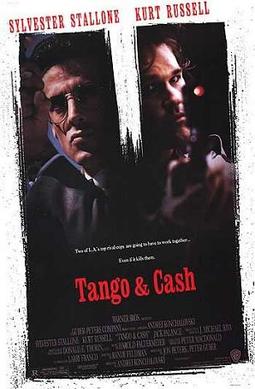
Right off the bat, I was wrong.
Seeing as how this film lead off Stallone Zone (click the link to read the Tango & Cash review), I figured there was no way we’d see it again here, but, as I said, I was wrong.
I will say, it was interesting watching it again as a Kurt Russell movie rather than a Stallone movie, but I don’t really have anything more to say now than I did in 2014.
Rating: ★★★★☆
Movie #2: Breakdown (1997)
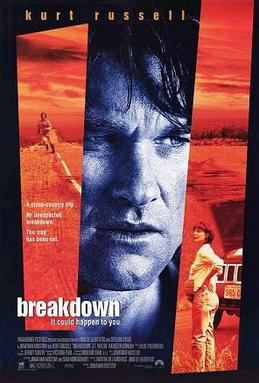
I remember my cousin putting this on once at my aunt and uncle’s house, probably around the time it first hit DVD (which was technology beyond my imagination at the time), only I don’t think I watched past the first half hour or so, so I never realized until seeing it on the big screen that Breakdown turns into an action movie by the end (spoilers?).
Before that though, the movie feels extremely Hitchcockian, so much so that you could believe it’s a remake of something Hitch actually made (though to my knowledge it is not and I’ll happily give full credit to writer/director Jonathan Mostow). The story’s simple enough (I’d actually make a gentle comparison to The Belko Experiment, just in terms of imagining yourself in the same situation), and it doesn’t fall into the trap of becoming too twisty, which I appreciated.
Ultimately, it comes down to personal taste as to whether or not the third act works for you. I’m okay with it, but I understand others feeling somewhat betrayed by it.
Either way though, I’d still say it’s solid.
Rating: ★★★½
Movie #3: Used Cars (1980)
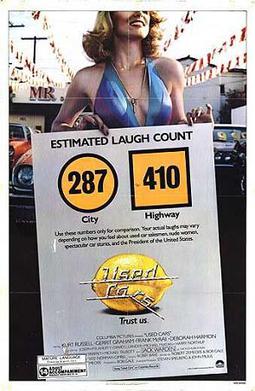
Before Bob Zemeckis and Bob Gale made one of the greatest movies of all time (review here), they had a string of less successful endeavors (I Wanna Hold Your Hand, 1941), culminating with 1980’s Used Cars (although they did write one of my favorite episodes of Kolchak: The Night Stalker).
Used Cars isn’t great, and its definitely a touch bloated, but it’s not without its charms. For one thing, it’s Kurt’s first R-rated performance, which is interesting to see at odds with his still-lingering Disney good guy persona, and it’s got Jack Warden doing some classic one-actor-playing-twin-brothers schtick, and a good amount of the satirical humor still holds up today.
It also hearkens back to a time when comedy wasn’t strictly a bargain basement genre and studios weren’t afraid to throw in a little more production value when necessary, even for an non-family friendly comedy.
Not everybody will fully enjoy Used Cars because it’s such a product of its time, but for me, that’s why I found it interesting and why I’d give it another watch someday.
Rating: ★★★½
Movie #4: Executive Decision (1996)
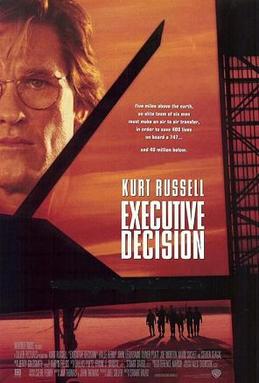
Speaking of the kinds of movies that don’t get made anymore, let’s talk Executive Decision (which is one I was hoping for, for better or worse).
Stuff like this just has a certain je ne sais quoi that feels missing from Hollywood of the present (the fact that it was made pre-9/11 definitely has something to do with that). It’s not like we have a dearth of action movies these days, but Executive Decision takes itself seriously in both story and tone where a movie today would have a wink and a nod (it’s no surprise that the last similar example I can think of, Behind Enemy Lines, was also a story by Jim and John Thomas).
I think it’s fair to say that Kurt plays against type here, at least relative to the “action man” roles he was known for at the time, but, even in a lame tuxedo and nerdy spectacles, he’s still cooler than we could ever dream of being.
“All-star cast” may be a stretch (it’s no Airport ’77), but, at the time, Executive Decision certainly had a mix of experienced pros and hot up-and-comers (most notably Halle Berry). Given that it’s a 90s action movie, I’ll say everyone does a fine job.
That said, let’s call it what it is, “Die Hard on a plane.”
Still worth a watch though, just get comfortable.
Rating: ★★★½
Movie #5: Escape from L.A. (1996)
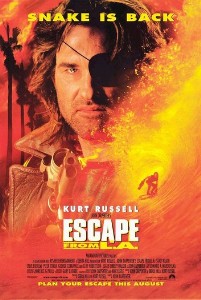
This is not how I wanted the day to end.
I don’t want to merely compare this movie to Escape from New York, but I don’t think it leaves you with much of a choice.
Honestly, Escape from L.A. is depressingly bad in comparison to its predecessor. New York was a low-budget underdog that managed to find an audience and punch a bit above its weight class. It stands on its reputation more so than its actual quality, but at the same time it was a fairly progressive movie in terms of film-making, what with the use of the Panaglide (an early “cousin” of the Steadicam) and new techniques that allowed Dean Cundey to shoot many city blocks deep using only streetlamps for lighting; not to mention how the film allowed Kurt Russell to truly pivot away from his Disney comedy roots.
On the other hand, L.A. is essentially The Asylum version of New York, with a copy-and-paste script, horrendous CGI effects, and terribly cheesy performances. In fact, the only element you can point to as being better than the original is the fact that they shot a scene at the real L.A. Coliseum, but the movie is still so terrible that it doesn’t even matter.
Escape from L.A. is awful, it was rightfully a box office bomb, and if you truly love Escape from New York, you should never ever watch it.
Rating: ★☆☆☆☆
So, there you have it. Not the best day, but definitely not all bad. Just kind of middling, and therefore not what I expected given Kurt’s body of work.
I guess they can’t all be winners.
This hat though, this hat is a winner.

